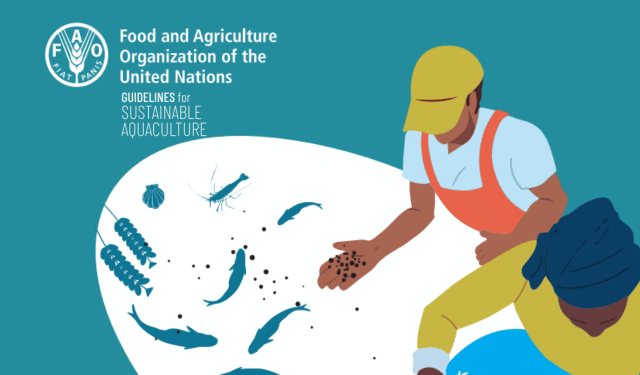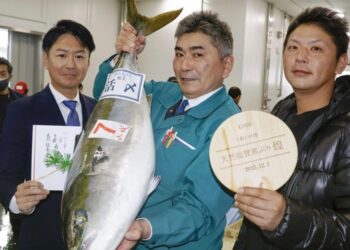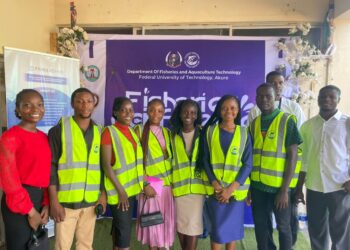Sustainable aquaculture opportunities and challenges for the sector’s future – Aquaculture has now overtaken capture fisheries as the world’s main source of aquatic protein production. This rapidly expanding sector is at a crossroads: either continue to grow without limits, with the risk of serious environmental and social impacts, or embrace sustainable development models that ensure food security and the protection of marine ecosystems.
FAO recently published the Guidelines for Sustainable Aquaculture, a document that establishes fundamental principles for the sector, aiming at a balance between productivity, sustainability and benefits for local communities. Let’s take a look at the main recommendations and challenges for operators in the coming years.
Governance and planning: the key to success
Sustainable aquaculture cannot be achieved without a strong governance system. According to FAO, governments must implement transparent and predictable regulations, facilitate responsible investment and ensure that aquaculture development is integrated with natural resource management policies. Spatial planning is essential to identify suitable areas for production while avoiding conflicts with traditional fisheries or tourism.
Natural resources and environmental impact: reducing the ecological footprint
The sustainable use of resources is one of the key pillars of the new guidelines. FAO emphasises the need to reduce the use of fish feed from capture fisheries and to encourage the use of alternative proteins, such as algae and insects. Integrated multi-trophic aquaculture is an effective solution to minimise pollution and optimise nutrient reuse. Furthermore, it is essential to protect biodiversity by regulating the introduction of non-native species and adopting biosecurity measures to prevent the spread of diseases.
Social responsibility and economic development
Sustainable aquaculture must also ensure decent working conditions and a fair distribution of economic benefits. The FAO guidelines place particular emphasis on protecting workers’ rights, promoting fair working conditions throughout the supply chain. The involvement of local communities in decision-making processes is crucial, especially in rural areas where aquaculture is a primary source of income. Equally, the importance of gender equality and social inclusion is emphasised, providing training and entrepreneurship opportunities for women and young people.
The future of aquaculture: between innovation and sustainability
The growth in global demand for seafood requires rapid innovation in the sector. Technology can play a key role in the development of more sustainable aquaculture, with the introduction of digital monitoring systems, advanced biotechnology for genetic selection and water recirculation techniques that reduce water consumption and minimise pollution.
The transition to sustainable aquaculture requires investment, public-private collaboration and increased consumer awareness. The FAO guidelines offer a clear framework to address the challenges ahead, but it is up to the industry to seize this opportunity and transform aquaculture into a responsible engine of economic growth.
The aquaculture sector is faced with a historic opportunity: to demonstrate that it is possible to produce more with less impact, while ensuring food security and sustainability. Those companies that can adapt to new market demands and adopt innovative practices will be the protagonists of the blue future of the fishing industry.
Sustainable aquaculture opportunities and challenges for the future of the industry







